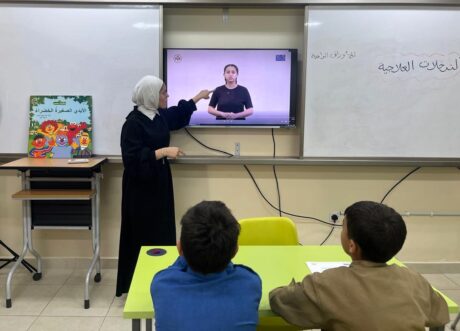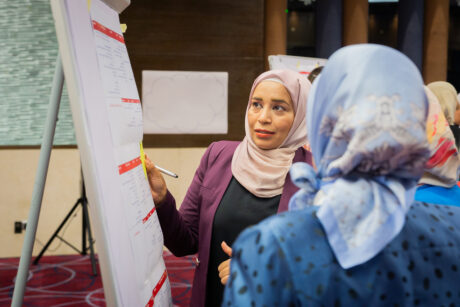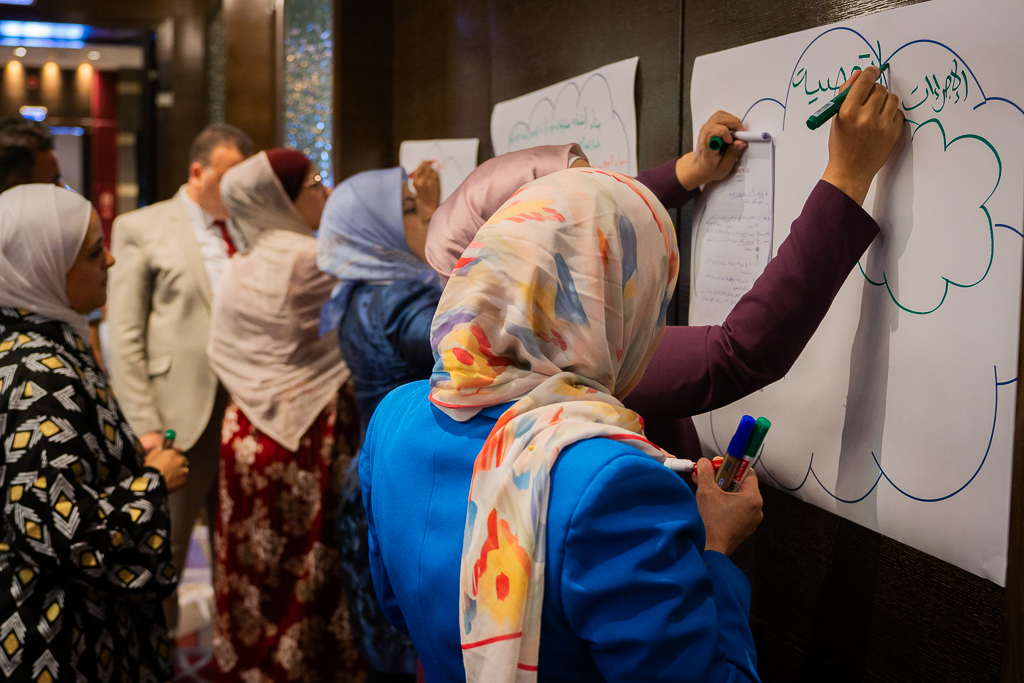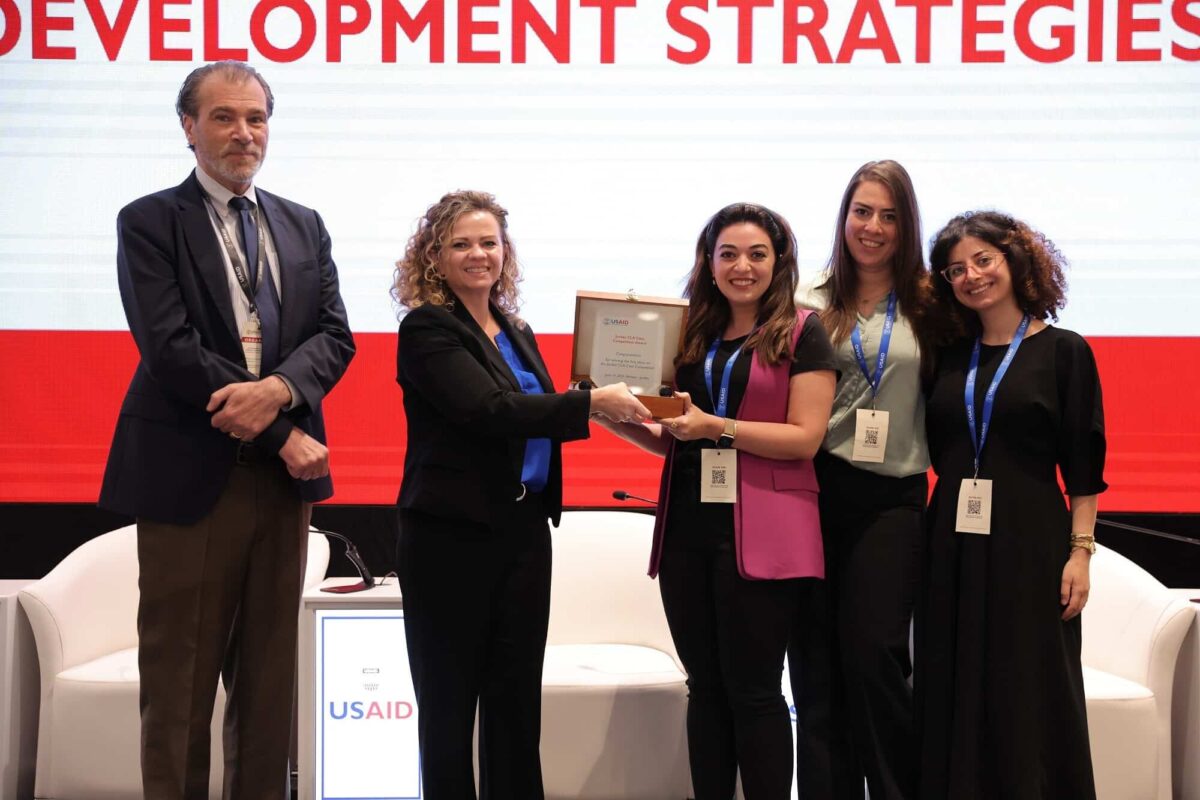Esta primavera marca três anos desde que a Organização Mundial da Saúde declarou a pandemia de COVID-19, qual foi o pior choque para os sistemas educativos durante décadas e resultou na fechamentos escolares mais longos.
Muitos países ainda estão emergindo da pandemia, e as escolhas políticas que os governos fazem são fundamentais na transição para um sistema mais forte e mais resiliente, capaz de resistir a outras crises. À medida que a pandemia começa a aparecer mais longe no nosso espelho retrovisor coletivo, continua a oferecer lições valiosas que podem nos ajudar a responder melhor a eventos semelhantes.
Uma dessas experiências valiosas foi trabalhar com o Ministério da Educação da Jordânia através do USAID-financiado Programa de Assistência Técnica (TOCAR). A TAP pretende reforçar a capacidade institucional e o comportamento organizacional do Ministério da Educação e Ministério da Juventude melhorar a qualidade dos serviços prestados aos jovens estudantes e jovens na Jordânia.
Quando a TAP foi lançada em 2021, A Jordânia estava lutando contra o fechamento de escolas devido à pandemia, que exacerbou a pobreza de aprendizagem e a desigualdade do país, especialmente entre as grandes comunidades de refugiados alojadas dentro das suas fronteiras.
Em resposta, A TAP embarcou num processo longo e multifacetado para garantir que o Ministério da Educação não esteja apenas a abordar a perda de aprendizagem e a remediação no curto prazo, mas para ajudar o Ministério a ver além da crise actual e a estar preparado para as futuras.
Avaliando a perda de aprendizagem
Para começar, o Ministério precisava de dados confiáveis e precisos para compreender as áreas prioritárias de perda de aprendizagem. A TAP trabalhou com os departamentos relevantes do Ministério para realizar um estudo de diagnóstico para avaliar a perda de aprendizagem e as condições de aprendizagem para informar as intervenções corretivas nas disciplinas fundamentais de árabe e matemática para as séries 4-11.
O estudo foi fundamental para os esforços do Ministério na utilização de dados para orientar os seus esforços na resposta à perda de aprendizagem causada pela COVID-19.
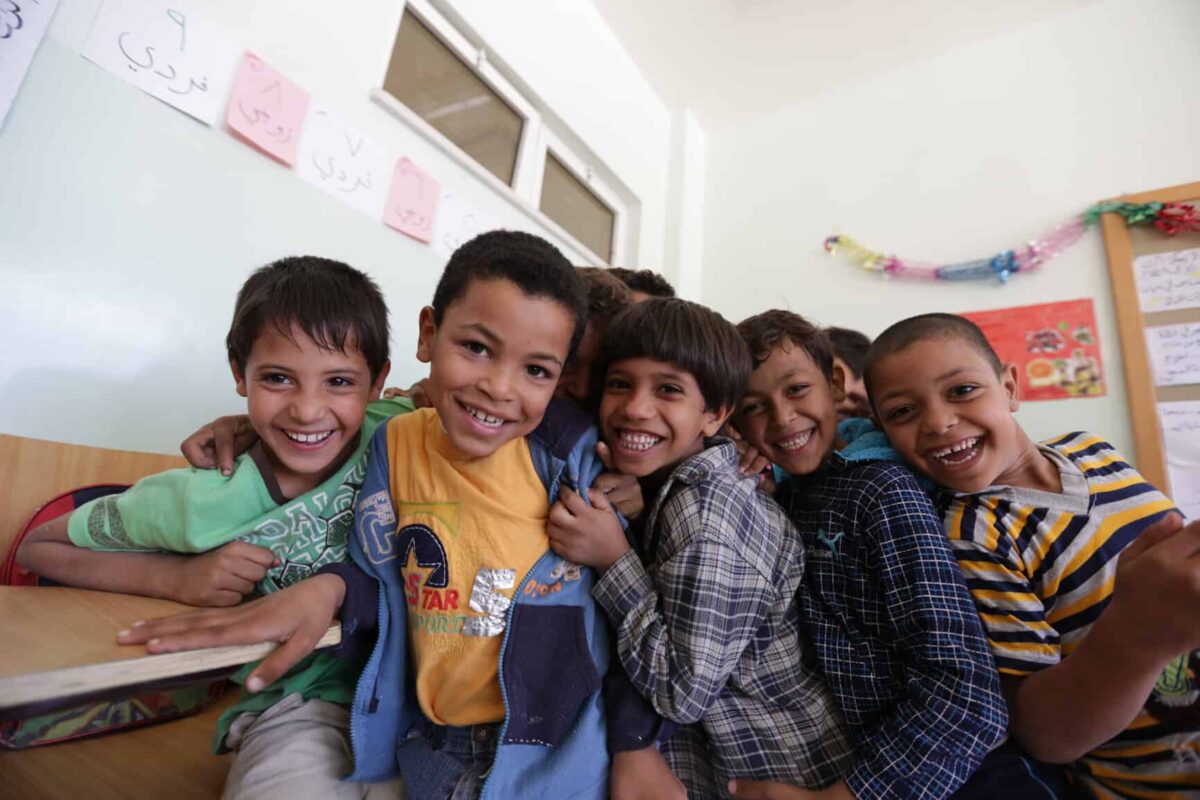
Desenvolvimento de materiais instrucionais que apoiam a aprendizagem
Os professores na Jordânia já enfrentavam dificuldades com o tempo de instrução limitado e uma pesada carga curricular, o que tornou a tarefa da TAP mais difícil, uma vez que a largura de banda para materiais instrucionais adicionais e formação de professores era muito limitada.
Em resposta, A TAP trabalha com o Centro Nacional de Desenvolvimento Curricular e o Ministério da Educação para desenvolver materiais de apoio ao ensino e à aprendizagem para aumentar a preparação dos alunos para se envolverem na aprendizagem na série.
Os materiais de remediação da TAP complementam os materiais existentes, concentrando-se em conceitos e habilidades fundamentais que ajudam a levar os alunos ao nível certo sem adicionar mais tempo de aula. Isso inclui planos corretivos individuais para alunos e aulas corretivas.
Foco no design e implementação liderados localmente
É fundamental ter o Ministério no comando para angariar adesão e apropriação em todas as fases do processo e garantir que a resposta do Ministério seja sistemática e sustentável.
A TAP envolveu-se com as equipas do Ministério e do Centro Nacional de Desenvolvimento Curricular a vários níveis através da cocriação: Do co-desenho do estudo diagnóstico às oficinas de interpretação e análise de dados, para o co-design de materiais corretivos, e co-implementação da formação de professores.
Esta abordagem liderada localmente apoia a sustentabilidade, pois requer um forte compromisso político, planejamento completo e precisa estar alinhado com um orçamento adequado.
Ter um plano de longo prazo
A recuperação da perda de aprendizagem causada pela COVID-19 levará muito tempo. De acordo com o Banco Mundial “Guia para recuperação e aceleração da aprendizagem” (Junho 2022), a remediação deve ser um esforço plurianual e multifásico, pois os alunos precisam se recuperar da perda de aprendizagem e melhorar os resultados da aprendizagem para a trajetória pré-pandêmica.
A TAP está a apoiar o Ministério no desenvolvimento de um Plano Corretivo Nacional de três anos, que deverá ser lançado nesta primavera e visa institucionalizar os esforços corretivos do Ministério.
O plano trabalhará no sentido de institucionalizar estudos de diagnóstico, aumentando a capacidade do Ministério para avaliar as necessidades e o avanço dos alunos, integração de esforços corretivos nos planos de melhoria escolar, e integração de princípios de aprendizagem socioemocional em materiais de ensino e aprendizagem. Também apoiará o Ministério na determinação de metodologias de ensino eficazes, centradas na criança e que aproveitem ao máximo o tempo de instrução limitado.
Uma vez aprovado, A TAP apoiará o Centro de Formação Educacional do Ministério na institucionalização de atividades corretivas no quadro de Desenvolvimento Profissional Contínuo e no portfólio de desempenho dos professores e integrará o apoio corretivo no Programa de Desenvolvimento de Escolas e Direções.
Nos próximos anos, A TAP continuará a apoiar o Ministério na implementação do seu Plano Corretivo Nacional e a reforçar a sua capacidade de mitigar a perda de aprendizagem e manter a qualidade do ensino. Os esforços da Jordânia para abordar a remediação através do estabelecimento de um plano nacional são um modelo exemplar para a mudança de sistemas e como as iniciativas lideradas localmente são fundamentais para a promoção de resultados de aprendizagem a longo prazo.

